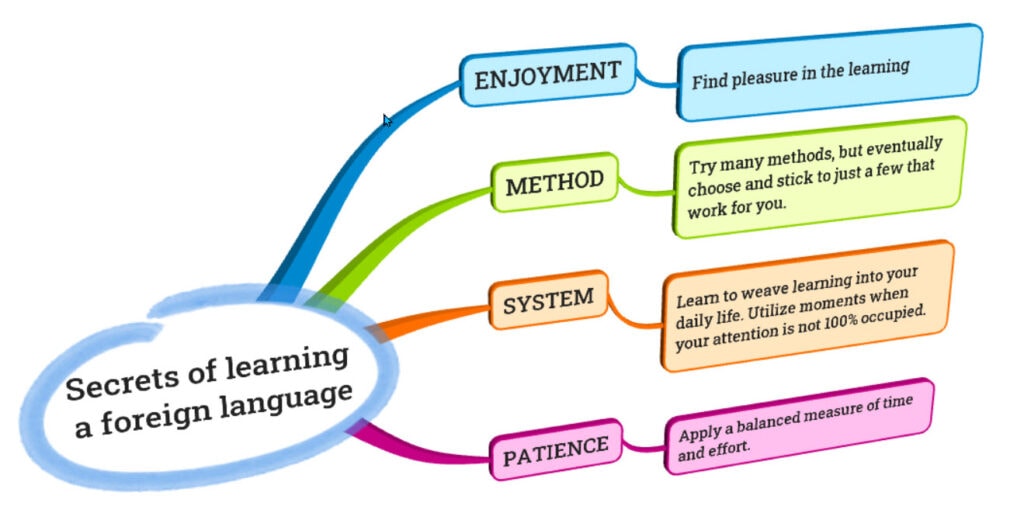
Secrets of learning a foreign language
PREMIUM
ENGLISH
LESSONS
The four secrets of learning
foreign languages

The four secrets of learning foreign languages
The key to becoming a confident and fluent speaker in a foregn language lies in mastering these four keys.
You are standing near the Trevi fountain in Rome. There’s a dense crowd of people. You can hardly catch a breath. You are trying to peek at the famous historical sight when your phone falls to the ground. Gosh! Now what? You are shouting: “Help, please help me find my phone!” but people do not seem to understand. They are just annoyed by you and keep ignoring you altogether.

Horrible vision, isn’t it? It would be so much simpler if you knew how to say the same thing in Italian. I’m sure that more people would sympathize with you and help you find your phone.
Yes, we live in a global village, but it seems that each villager has their own language. Clearly, using English helps in many situations. After all, it is the most widely used second language in the world.

But how to learn languages? Is there a magic secret or method? Lydia Machova has some really interesting ideas on the topic. Her TED talk has been seen more than 6 million times. She believes that there are four factors contributing to success in learning a foreign language:
- Enjoyment
- Method
- System
- Patience
It makes perfect sense. I have to admit, it is one of the best takes at figuring out what it really takes to learn another language.
It all starts with finding pleasure in the process of learning. Are there things you enjoy doing? Perhaps it is taking photos, doing yoga, or riding a bike. Think back to a moment when you felt quite happy doing it. Now copy this emotion and keep it in your emotional clipboard. When you sit down to learning a foreign language, just paste this emotion from the clipboard.
Do you know how to make a sandwich? Do you think there is just one way of accomplishing this culinary task? Clearly, there are more ways than one. Nevertheless, you still stick to your method. You know it works. Perhaps you even tried others, but eventually, you decided that there is one that renders the best, most delicious results for you.

The same applies to methods of learning a foreign language. We should try different methods, but eventually, we should arrive at a selection of methods that work for us.
The system component is quite tricky. It has to do with our lives. Learning a foreign language is hardly our top priority. We have our families, jobs, other pursuits. They all take precedence. This leaves little time for learning. We need to learn to weave learning into the fabric of our lives. Make the best use of the moments when our attention is not 100% occupied perhaps. Like listening to podcasts while driving a car.
Finally, there is patience. Let’s bring another culinary example. Do you know how to make roast chicken? Do you know how long it should stay in the oven? What should the temperature be? Most answers I got from my students range from 60-90 minutes at around 180-200 C. So, I have a question for you, can we expect a good result if we set the timer to six hours and the temperature to 30 C? Alternatively, can we get a crispy roast chicken when we set the oven to 30 minutes and 250C? Both answers are a clear and decisive “no”. You get the point, don’t you?
So, in the end, it is down to these four keys: enjoyment, method, system and patience. Once you learn how to incorporate them into your learning system, your success is guaranteed.
I have been helping learners of all ages and walks of life to learn English. Trust me to help you get on with this project and I assure you, we will not only have a great time learning English together, but you will also see yourself making rapid progress.








